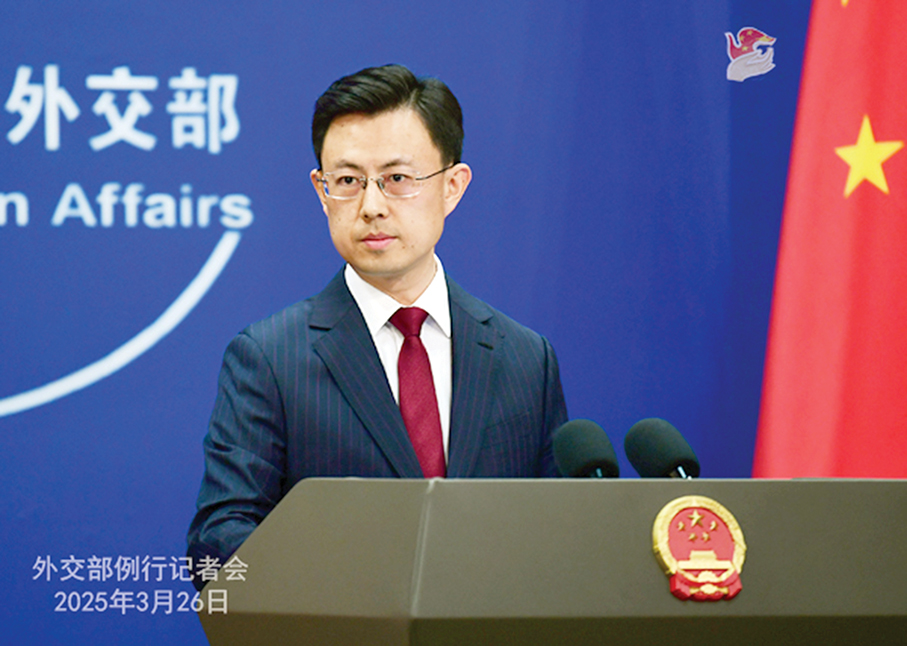China Daily Editorial
Both Beijing and Washington have said that US Secretary of State Antony Blinken’s ongoing visit to China is a follow-up to the earlier agreement between the leaders of the two countries on the need to sustain communication and manage the frayed bilateral ties.
There is little doubt about the importance of the two sides continuing to talk. But there is a huge question mark over what the discussions between the top US diplomat and his hosts can yield. It is generally assumed that given the current state of relations between the two sides, the chances are slim that the visit will culminate in any meaningful deliverables.
Beijing and Washington seem to have been largely talking past each other on very important issues of mutual concern in recent years, and the likelihood of that pattern changing during Blinken’s visit appears remote. This is because, as distrust accumulates between the two governments, the gap between them keeps widening.
Secretary Blinken revealed prior to the trip a long list of subjects that he wanted to discuss with his Chinese hosts. It encompasses topics from China’s alleged overcapacity to support for Russia’s military industrial base to the East and South China seas to the Taiwan question to human rights to synthetic opioids to the Middle East.
At a news briefing by an official with the Foreign Ministry’s Department of North American and Oceanian Affairs, Beijing categorically rejected Washington’s narrative on every topic on Blinken’s list.
On the conflict in Ukraine, the world can see it clearly that the Ukraine issue is not an issue between China and the US, and the US side should not turn it into one. On the Taiwan question, it’s China’s domestic affair that brooks no interference by outsiders. On the South China Sea issue, the US is not a party to the disputes there, and thus it should not intervene, not to mention mess things up. On human rights, matters involving Xinjiang, Xizang and Hong Kong are all China’s internal affairs, which have nothing to do with human rights, and the US must not interfere with Chinese domestic affairs in the name of human rights. On the latest US accusation concerning “overcapacity”, it is Washington that resorts to “naked economic coercion and bullying”, targeting China’s advantages in electric vehicles, power batteries and solar panels as results of the international division of labor and market demand.
Beijing also presented its own list of priorities for the discussions, which are establishing the right perception of ties, strengthening dialogue, effectively managing differences, promoting mutually beneficial cooperation, and jointly shouldering responsibilities as major countries.
But these fundamental building blocks for better relations have been laid on shaky ground as contrary to Beijing’s expressed hope for a constructive atmosphere for the face-to-face communication, Blinken struck a harsh note before he departed for China.
He accused China of “supporting” Russia’s special military operation in Ukraine, and attempted to enlist the European Union’s support to mount pressure on Beijing. “If China purports on the one hand to want good relations with Europe and other countries, it can’t on the other hand be fueling what is the biggest threat to European security since the end of the Cold War,” he said last week.
Moreover, coinciding with Blinken’s trip to China, media reports reveal that the US is planning to kick some Chinese banks out of the international financial system for allegedly financing Russia.
In a clear response to the US allegation of it assisting Russia’s invasion, the Chinese government published a white paper titled “The Hypocrisy and Facts of the United States Foreign Aid” on Friday. The document turned out to be a fitting answer to the US Senate passing a high-profile package of foreign aid to Ukraine, Israel and Taiwan island on Tuesday night local time.
Indeed, on each and every subject Blinken is expected to raise during his talks with his hosts, he will present a diametrically opposite opinion to theirs, meaning there is little room for compromise unless there is some give and take.
While that has been found wanting up to now, the fact that Blinken is in Beijing for talks offers a glimmer of the hope that still lingers in Pandora’s box, as it suggests that both sides still view the possibility of finding some firm common ground as a case of never say never.
– Courtesy of China Daily








